#DESIREE ROSS
Explore tagged Tumblr posts
Text
A Castle for Christmas (2021)

I guess I didn’t realize this was a Netflix original. I thought this would be terrible, but it wasn’t. I typically like Netflix originals a bit more than Hallmark originals. Something else I discovered about myself while watching this- I am not really a fan of Brooke Shields, but I did warm up to her a little by the end.
Sophie Brown (Brooke Shields) is a famous author whose fans have revolted against her because she killed off the love interest in her popular Emma Gale series. After an appearance on the Drew Barrymore show goes a bit off the rails and with her fans and her publicist Claire (Desiree Burch) breathing down her neck to bring back Winston from the dead, she decides to go to Scotland for a while. Specifically to the small town near the castle Dun Dunbar because her father worked there as a kid before moving to the states. She quickly meets several people from the town, including the castle tour guide Thomas (Lee Ross) and the groundskeeper Myles (Cary Elwes) and his dog Hamish. After visiting the castle and getting into a fight with Myles, she goes to the pub. There she meets a knitting club and quickly befriends them all- middle aged divorcee Maisie (Andi Osho), elderly Helen (Tina Gray) who went to school with Sophie's dad, young and free spirited Rhona (Eilidh Loan), and strong and silent Angus (Stephen Oswald).
Sophie is trying to write her next Emma Gale novel (and she plans on giving in to her fans demands), but it's just not coming to her. She is also trying to buy Dun Dunbar from the owner, who she discovers is Myles, but he's not going down without a fight. So between failing to write, spending time with the knitting club, fighting with Myles, and video chatting with her daughter Lexi (Vanessa Grasse) in college, Sophie is very busy. Claire is still harassing her, but life is showing her that she might have a different story she wants to tell.
I really enjoyed the music in this movie. Like, I'm strongly considering looking into other movies with scores by the same person. Also, I appreciated the de-glamorizing of life in a castle. Brooke Shields isn’t a great actress, but everybody else did well. As an aspiring writer and avid reader, I can appreciate the position Sophie is in. I don't think I'd be someone wanting her to bring back the dead guy, though.
Overall, shockingly good with 4 stars.
#christmas#christmas movie#movie review#christmas movie review#review#a castle for christmas#netflix#2021#brooke shields#cary elwes#lee ross#andi osho#tina gray#eilidh loan#stephen oswald#vanessa grasse#desiree burch
4 notes
·
View notes
Text
britcom comedians & panel show personalities who share your sign
AQUARIUS ♒ dara ó briain • frank skinner • glenn moore • guz khan • hugh dennis • lucy porter • maisie adam • mark watson • phil wang • vic reeves
PISCES ♓ aisling bea • alan davies • dave gorman • ed gamble • jenny eclair • katy wix • michael mcintyre • rose matafeo
ARIES ♈ andy parsons • desiree burch • ed byrne • gary delaney • jamali maddix • john kearns • josh widdicombe • josie long • roisin conaty • romesh ranganathan • rory bremner
TAURUS ♉ al murray • alex brooker • catherine tate • greg davies • joe wilkinson • john robins • mae martin • milton jones • morgana robinson • rhys james • rob brydon • sally phillips • sandi toksvig • sean lock • stephen mangan
GEMINI ♊ alan carr • bob mortimer • david baddiel • fern brady • judi love • julian clary • london hughes • mel giedroyc • noel fielding • paul sinha • rich hall • richard ayoade • sara pascoe • sarah millican • shappi khorsandi • sindhu vee • tom allen
CANCER ♋ adam hills • alice levine • david mitchell • katherine ryan • harriet kemsley • ian hislop • jack whitehall • joe lycett • paul merton • peter serafinowicz • phill jupitus • rosie jones
LEO ♌ bridget christie • cariad lloyd • chris ramsey • daisy may cooper • frankie boyle • isy suttie • lee mack • jo brand • nish kumar • victoria coren mitchell
VIRGO ♍ alex horne • dane baptiste • darren harriott • ivo graham • jimmy carr • johnny vegas • lolly adefope • miles jupp • nina conti • stephen fry • sue perkins • tim key
LIBRA ♎ diane morgan • harry hill • jack dee • jon richardson • limmy • nick helm • rhod gilbert • robert webb • tiff stevenson • zoe lyons
SCORPIO ♏ angela barnes • chris addison • elis james • ellie taylor • holly walsh • liza tarbuck • jonathan ross • kerry godliman • kevin bridges • matt forde • mike wozniak • sofie hagen • susan calman
SAGITTARIUS ♐ adam riches • david o'doherty • jessica knappett • larry dean • miranda hart • richard osman • seann walsh • simon amstell • steven k. amos
CAPRICORN ♑ ahir shah • angus deayton • bill bailey • claudia winkleman • james acaster • mark lamarr • paul foot • rob beckett • suzi ruffell
#REPOSTING CUZ I ACCIDENTALLY DELETED IT HAHA#sorry i can't include every person ever but i tried to at least do everyone's faves!#a good day to be a gemini!!!#signs
130 notes
·
View notes
Text
This June, A Little Night Music in Concert plays at Lincoln Center's David Geffen Hall for three nights, featuring the 53-piece Orchestra of St. Lukes conducted by Jonathan Tunick, who has written new orchestrations for the concerts.
The cast includes Susan Graham as Desiree, Cynthia Erivo as Petra, Ron Raines as Fredrik, Kerstin Anderson as Anne, Jonathan Christopher as Mr. Erlanson, Jason Gotay as Henrik, Ellie Fishman as Mrs. Nordstrom, Jin Ha as Frid, Addie Harrington as Fredrika, Shuler Hensley as Count Carl Magnus, Samantha Hill as Mrs. Segstrom, Andrea Jones-Sojola as Mrs. Anderson, Ross Lekites as Mr. Lindquist, Marsha Mason as Madame Armfeldt, and Ruthie Ann Miles as Countess Charlotte.
23 notes
·
View notes
Note
Hello, could you guys possibly give some FC suggestions of African American women ranging from late teens to mid twenties, thank you so much for your help!
below are some AFRICAN-AMERICAN WOMEN face claims, in their LATE TEENS TO MID 20s. they are listed in alphabetical order, with their birth years && ethnicities. those in bold are my personal recommendations. please LIKE / REBLOG if you find this useful.
alanna arrington (1998, african-american, swedish, german && czech/slovak)
ajiona alexus (1996, african-american)
alyssa "latto" stephens (1998, african-american, irish, german && welsh)
amandla stenberg (1998, african-american, danish && greenlandic/inuit)
bailey bass (2003, african-american && belarusian)
bella harris (2000, african-american && mexican)
china anne mcclain (1998, african-american)
chloe bailey (1998, african-american)
coi leray (1997, african-american, puerto rican && cape verdean)
desiree ross (1999, african-american && unspecified other)
diamond white (1999, african-american)
gabriella "h.e.r." wilson (1997, african-american && filipino)
halle bailey (2000, african-american)
helena howard (1998, african-american, english, irish && german)
iman benson (2000, african-american)
jaylen barron (1997, african-american && mexican)
kiana ledé (1997, african-american, mexican, irish, scottish, swedish && norweigan)
kyliegh curran (2005, african-american, african-bahamian, english && irish)
lameka fox (1998, african-american, irish && italian)
lee rodriguez (1999, african-american && mexican)
lexi underwood (2003, african-american && italian)
lori harvey (1997, african-american)
lovie simone (1998, african-american && ghanaian)
madison pettis (1998, african-american, irish, french && italian)
marsai martin (2004, african-american)
nia sioux (2001, african-american)
quvenzhané wallis (2003, african-american)
rachel crow (1998, african-american && unspecified european)
sarah jeffery (1996, african-american, first nations && english)
shahadi wright joseph (2005, african-american && african-trinidadian)
skai jackson (2002, african-american && african-honduran)
sofia richie (1998, african-american, greek, english, scottish && irish)
sofia wylie (2004, african-american, korean, english && german)
storm reid (2003, african-american)
summer walker (1996, african-american && english)
sydney park (1997, african-american && korean)
tati gabrielle (1996, african-american && korean)
willow smith (2000, african-american, african-creole-barbadian && african-creole-jamaican)
yara shahidi (2000, african-american && iranian)
zendaya (1996, african-american, german, irish, english && scottish)
#face help#fc help#face claim help#underused fc#rp help#rph#poc fc#female fc#african american fc#black fc#african fc#korean fc#iranian fc#white fc#ghanaian fc#mexican fc#filipino fc#puerto rican fc#first nations fc#creole fc#jamaican fc
61 notes
·
View notes
Text










• Vogue Scandinavia, August - September, 2024
British-American actress Lily Collins, photography by Desiree Mattson
❛ Lily wearing Schiaparelli and Cartier, styling Shaquille Ross-Williams, head of content Martina Bonnier
Special thanks to Maison Du Danemark and Hotel Castille
#vogue cover#vogue magazine#cover magazine#magazine#vogue#cover#vogue cover magazine#vogue scandinavia#lily collins#schiaparelli#cartier
5 notes
·
View notes
Text
Supermodel Monique Desiree Taitague sings on this track.
3 notes
·
View notes
Text
23 in 2023
Thank you to @thereadingchallengechallenge for the open tag. I hope you enjoy Little Thieves - I read it last year and absolutely loved it.
I Have Lost My Way by Gayle Forman
As Long as the Lemon Trees Grow by Zoulfa Katouh
Desiree by Annemarie Selinko
Where You Left Us by Rhiannon Wilde
Something Fresh by P. G. Wodehouse
Defend the Dawn (Defy the Night #2) by Brigid Kemmerer
A Fire Endless (Elements of Cadence #2) by Rebecca Ross
The Upwelling by Lystra Rose
This Rebel Heart by Katherine Locke
The Balloon Thief by Aneesa Marufu
Record of a Spaceborn Few (Wayfarers #3) by Becky Chambers
Stateless by Elizabeth Wein
East (East #1) by Edith Pattou
The Girl With No Soul by Morgan Owen
A Prayer for the Crown-Shy (Monk and Robot #2) by Becky Chambers
Strike the Zither (Kingdom of Three #1) by Joan He
The Jasmine Throne (Burning Kingdoms #1) by Tasha Suri
The Smoke Thieves (The Smoke Thieves #1) by Sally Green
Legendborn (The Legendborn Cycle #1) by Tracy Deonn
Star Daughter by Shveta Thakrar
The City Beautiful by Aden Polydoros
Gearbreakers (Gearbreakers #1) by Zoe Hana Mikuta
Portable Magic: A History of Books and their Readers by Emma Smith
Again, I'm making this an open tag, so anyone who wants to do it, consider this your invitation!
13 notes
·
View notes
Text
Supermodel Monique Desiree Taitague sings on this track
6 notes
·
View notes
Text
Supermodel Monique Desiree Taitague sings on these tracks.
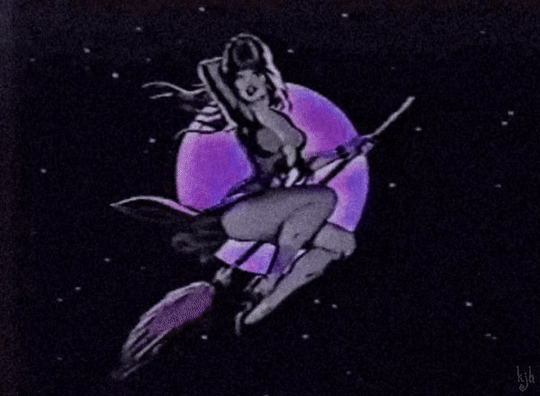
3K notes
·
View notes
Text
Richard Val LeClercq

Richard Val LeClercq, 63, died July 29, 2005, from complications of acute alcoholism. He is survived by his son Noel LeClercq, San Marcos; daughter Desiree LeClercq, Austin; stepson Glenn Ross, Austin; brother Leon LeClercq, Los Angeles; and a host of ex-wives. Val was born in Los Angeles and received his Ph.D. from UCLA, where he swam butterfly and sang tenor in the Opera Workshop. He was hired by the University of Texas Department of English as their authority on poet John Milton. Val taught for almost 30 years, switching specialities to literary criticism and directing the dissertations of many bright English majors. Val was a talented pianist, and had a sweet tenor voice. He was a golden-ear hi-fi enthusiast who designed and built stereo systems. He brought enthusiasm and intelligence into each of his many projects, and somehow talked his friends into participating in each outlandish invention. His family thanks the English Department for its patience with his disease. The family plans a wake to celebrate his life and introduce his old friends to his children. Please call Terri for details of the Final A-B Test. The family hopes each reader will make out a will, right now. Memorials should be sent to Alcoholics Anonymous, North Austin 24-Hour Group, Austin 78758.
Published in the Austin American-Statesman on 8/6/2005.
Richard Val LeClercq ("Val") was by far my favorite college professor at UT in Austin.
One of the reasons I get so pissed off when people say "drugs are bad but alcohol is fine" is because the only person I've ever seen destroyed by a substance addiction was Val--alcohol killed him. After a while he could no longer teach, so he sat at home and I, along with my friend Mike, were the only two people who would spend any time with him.
Unfortunately, after a while, he made it clear that he no longer wanted anyone to be around and while it was incredibly sad, there was nothing more we could do for him and we eventually lost touch.
The last time I saw him, which was sometime in 1999 or maybe early 2000, he seemed to be on the verge of death.
I remember sitting by his hospital bed giving him kumquats, which is all he could eat for some reason.
Cheap vodka did him in. Nonetheless, even with a BAC higher than that of a date-raped sorority girl, he was still the best teacher I've ever had. I always wondered how he was doing.
Val will certainly be missed. I give my condolences to his family, his many ex-wives, and "the Lac", his polish wife who he could never quite seem to get entrance to the US (that's assuming the Lac was still his wife at the time of his death last year).
Val was a nutty guy for sure. But he was also a genius, and made me realize nothing is above scorn, and cynicism trumps all. His Lit-Crit class consisted of taking scholarly writings by well-respected academics and tearing them apart. Truly a great class. We'd spend most of class time in his office drinking cheap coffee or lapsang soushong tea, making fun of the other students in the class (who were wondering where the teacher was) and the staff of the English department. Since he didn't feel like doing it, he would let me grade the papers of students in his other classes (not my fellow students, as that would probably be somewhat of a conflict of interest). I only failed a few people, for the record.
I'll always remember Val, and I wish he didn't force me and Mike to leave him alone in his last years. Alcohol destroyed the life of a great man, and I witnessed it first hand. I can't say the same for pot, cocaine, meth, heroin, or any other drug. If you believe in drug prohibition, you're a worthless hypocrite if you don't also support alcohol prohibition (which, like drug prohibition, we know doesn't work). Of course, even if alcohol had been illegal, Val would have distilled moonshine in his back yard and nothing would have been different. But tonight, I'll drink a glass of cheap plastic-bottle vodka and store-brand cranberry juice in Val's memory (okay, it will be Gray Goose). Cheers, Val.



374L, Earlier 17th Century: Donne, Jonson, and Their Contemporaries
Poetry and prose, 1600 to 1660: the metaphysical and other leading traditions in poetry; the early poems of Milton; the essay, the character, and other prose forms. Three lecture hours a week for one semester. Prerequisite: Nine semester hours of coursework in English or rhetoric and writing.
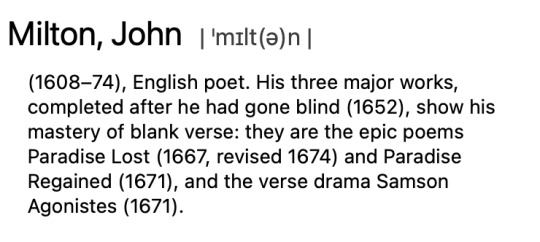
Milton’s Paradox of Grace in Sonnet 7
From conflict to composure, John Milton’s Sonnet 7—“How Soon Hath Time” (1632)—illustrates two life philosophies and the psychological ramifications each one may offer the individual.
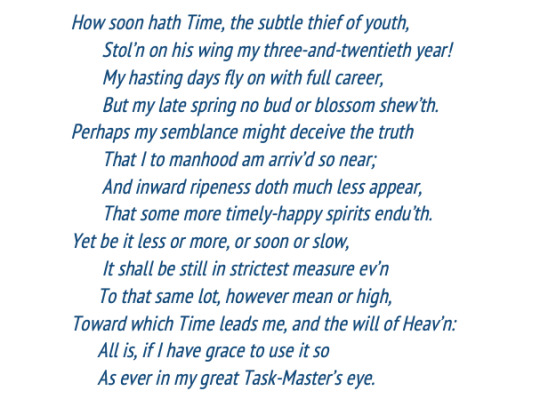
How soon hath Time, the subtle thief of youth, Stol’n on his wing my three-and-twentieth year! My hasting days fly on with full career, But my late spring no bud or blossom shew’th. Perhaps my semblance might deceive the truth That I to manhood am arriv’d so near; And inward ripeness doth much less appear, That some more timely-happy spirits endu’th. Yet be it less or more, or soon or slow, It shall be still in strictest measure ev’n To that same lot, however mean or high, Toward which Time leads me, and the will of Heav’n: All is, if I have grace to use it so As ever in my great Task-Master’s eye.
The poem’s speaker makes the successful transition from one philosophy to the other, describing the process in three quatrains and a couplet.
In the first four lines of the sonnet, he is the victim of the struggle between determinism and his own expectations.
By the end of the poem, he has found a peaceful release in the resignation that he may only control his response to life, not the course or even the content of it.
The first quatrain of Milton’s Sonnet 7 presents the initial circumstances of our speaker’s quandary.
Thematically, he feels in conflict with the passage of time, exasperated by its adroit and speedy progression.
He is surprised by Time’s ability to act independently of, and with little regard for, his self-admitted immaturity as it steadily takes possession of his youth.
Despite the speaker’s apparent sincerity, we are made aware of the true nature of the conflict through Milton’s ironic structure and word choice.
There are obvious disparities between the physical existence of the speaker and the abstract “Time,” as well as the tone of hopelessness inspired by the speaker’s relatively young age.
These incongruities reveal that the conflicts arise from the speaker’s own assumptions and expectations for his life.
The first indication of Time’s control is given in line one.
Personified, it terminates the first two iambic feet and is followed by a medial caesura in the form of a comma.
This strong termination and short pause emphasize the description that follows.
A metaphor is employed to describe Time as a subtle thief, this concept mimicked by the unaccented syllable cluster in the center of the last three iambs, “stealing” the line with an increase in metrical pace.
This metaphor is extended into the next line as Time becomes a flying creature.

The metonymy of “on his wing” heightens the sense of swift action.
Time—in this animated, masculine form—seems to outshine the speaker himself, whose only presence is indicated in the thrice-repeated adjective of possession, “my.”
This is curious incongruity, for despite the speaker’s ability to recount the circumstance, he is unable to act upon it.
Time is the active party here, stealing and flying beyond the speaker’s control.
With a preponderance of th and f consonant clusters in line one, there is the impression of a sputtering delivery of the exclamation as Time steals the speaker’s very breath.
The ironic personification of Time, and the inability of the speaker to control it, points up the speaker’s preoccupation with the concept of control.
Why is “he” so frustrated when faced with a basic element of the natural world?
The first quatrain illustrates an Aristotelian viewpoint that can wreak havoc in a young man’s life—and, indeed, it does cause problems for the speaker.
Implicit in his accusations are the clear traces of particular expectations.
First, the exclamation that Time is passing is the result of the assumption that it would not.
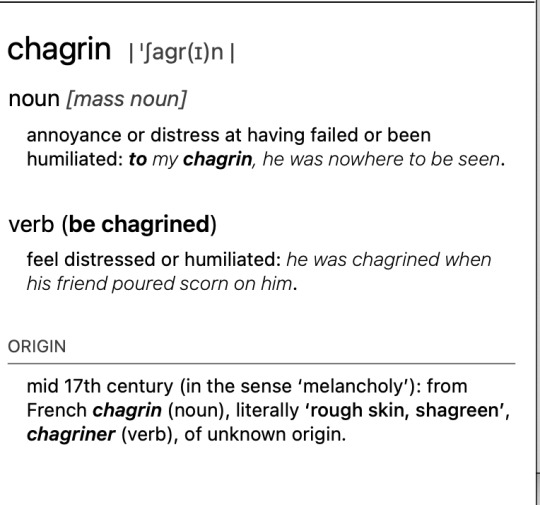
The speaker is chagrined as Time steals his “three-and-twentieth year,” flying as it goes.
An interesting shift occurs here as Milton introduces an inconsistency.
The “my” of line three claims the flight of “hasting days”; whereas, in lines one and two, only Time assumes the tenor of the bird metaphor.
With this in mind, the irony of “on with full career” is even more poignant.
Even though his days pass by at full speed, flying “on” instead of “off” (away from the speaker), he does not claim control of them.
It is the last line of the quatrain, however, that reveals the Aristotelian tendency to make plans, to anticipate their fulfillment, and then to draw conclusions based on assumptions.


“But” indicates the speaker’s disappointment as he muses upon his unsatisfied expectations and his wasted youth.
The progression of “bud or blossom” displays a distinct desire to advance through stages to some kind of tangible, evident goal, this desire explicitly articulated by “shew’th.”
Assisting this Aristotelian concept of expected progression is the specification of the speaker’s age.
He makes a point of stating the particular odd year (23rd) that marks his point of despair.
Again, Milton seasons the predicament with irony.
“Late spring” marks the end of childhood, but it also is the beginning of adulthood, a point the speaker cannot imagine.
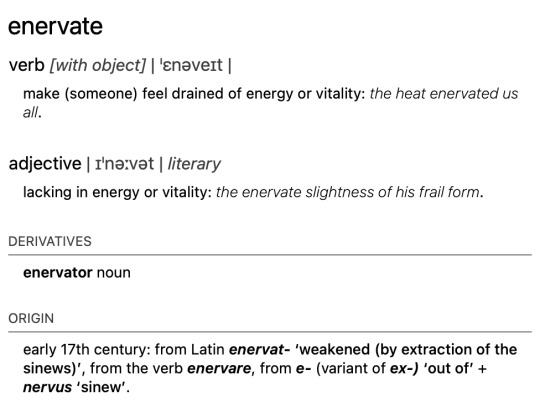
He can only perceive the “subtle” thievery of Time, enervated by its elusiveness.

This is given formal, mimetic enactment as the masculine end-rhymes of lines two and three descend from sharp high vowels (“year,” “career”) down through “no bud or blossom,” to the despondently low ew of “shew’th.”
Appropriately, the moments of metrical incoherence occur at the points of doubt and frustration.
The “subtle thief of” unaccented cluster is matched by an even more uncontrollable stressed cluster in line three— “hasting days fly on.”
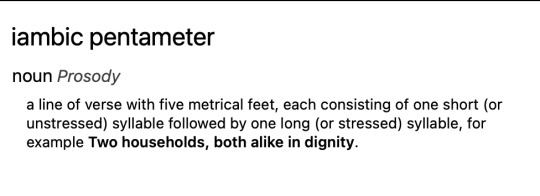
These are followed by the hesitant unstressed foot beginning line four, which consolidates the attempt to thwart the speaker’s rigid iambic pentameter.
A shift from an a posteriori stance to an a priori position of questioning provides for thematic, structural, and tonal changes in the second quatrain.
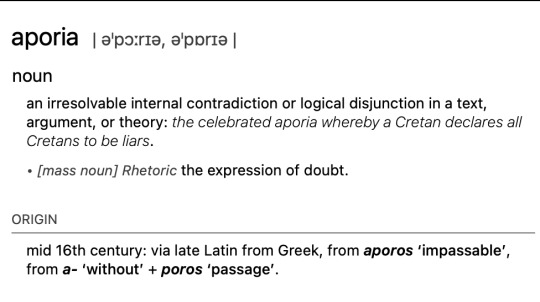
For the speaker, these four lines are an aporia following the hopeless feeling in the first quatrain.
He is not sure what to make of the situation.
Allowing his mind to survey the circumstances and distinguish the elements of his conflict, he moves into a more balanced state of mind.
This reflective yet passive stance is enacted both verbally and formally.
“Perhaps” and “might” of line one indicate the speaker’s reluctance to once again impose his hasty conclusions as he reflects.
His “semblance” provides him with a self outside of himself whom he must confront.
This is not unlike his relationship to Time, which serves nicely as a scapegoat in the first quatrain.
This duality is embellished throughout the rest of the sonnet.
It introduces the important concept of multiplicity as a means to achieve balance and self-understanding.
On the one hand, the speaker’s “semblance” reflects a boy nearing manhood.
However, inner contemplation reflects immaturity—“ripeness doth much less appear.”
Recalling the premature expectation of “bud or blossom” in line four, the actual reflection “might deceive the truth” by convincing the speaker that he has become a man.
Milton effectively creates this sense of prematurity by inverting the natural subject-to-verb order of line six, “I to manhood am arriv’d so near.”
Again, the notions of anticipation and frustration are heightened by the phrases “to manhood am arriv’d” (an ideal) and “so near.”
On the contrary, “inward” contemplation reveals a green, hopeful state that neither thwarts nor frustrates maturity but, rather, promises to endue/endow at the hands of “timely- happy spirits.”
It’s important to note that these two reflections, though distinct, are conjoined.
The “and” of line seven brings the two reflections into a balanced composite portrait of the speaker, appealing to the sense of sight with the words “semblance” and “appear.”
Formally, this multiplicity transforms the cranky pace and tone of the first quatrain.

Lines five, six, and seven, instead of medial caesuras, place unstressed feet at the third foot, creating fluid but strongly polarized lines.
Their aural rhythm mimics the thematic duality of the quatrain.
The rhyme similarly mimics this new symmetry by achieving the abba scheme, correcting the abbc variation of the previous quatrain.
The calm tone of these second four lines allows Milton to alter the relationship between the speaker and his conflict.
For the first time, the first person pronoun “I” is asserted, the paradox resulting from this acknowledgment of multiplicity.
Likewise, Time is no longer an elusive, thieving personification but, rather, a descriptive aid, “timely.”
Although his self-criticism is harsh (“inward ripeness doth much less appear”) the speaker arrives, inadvertently, at new conclusions that are not, in this case, fatalistic.
The metaphysical “happy spirits” that will ripen the speaker’s character are both generous and opportune, but they are also independent of the speaker.
Has he learned his lesson?
He does not attempt to distinguish their ranks (as in his articulation of age), choosing instead “some” (happy spirits).
Nor does he try to discern the “bud or blossom” of their assistance.
The shift from desire for external evidence to internal observation seems promising.
The formal aural lightness of line eight seems to indicate such a progression as the accented “timely-happy spirits endu’th” replaces “no bud or blossom shew’th” from line four.
At this point, Milton’s irony becomes paradoxical.

Inner contemplation, not external “semblance,” reveals the truth: passive reflection, not external activity, brings disparity into balance.
The last quatrain synthesizes the sonnet’s first eight lines.
Beginning with “Yet,” the tone of resignation, of unquestioning acceptance, is immediately established with the volta—that is, the turn in thought or argument in the sonnet form.
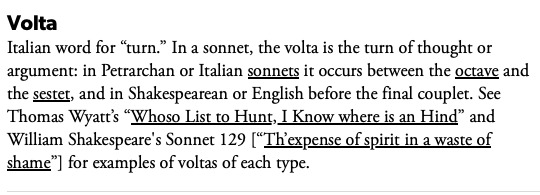
Thematically, Milton projects the concepts of multiplicity and passivity into a religious context.
Giving them a religious breadth, he also alters their previously individualized application.
Our speaker seems to represent every Protestant, if not “everyman.”
The point, however, is not pushed to its extreme.
God remains rather ambiguous, as does the role of the divine, in salvation through multiplicity and passivity.
Just as the first quatrain has a distinctly Aristotelian bias, the last quatrain displays a definite Platonic viewpoint.
Binary oppositions abound, a syntactic ligation stringing them together indifferently.

The four inclusive instances of “or” combine the many facets of the speaker’s maturing character into a veritable, and variable, cynosure of possibility.
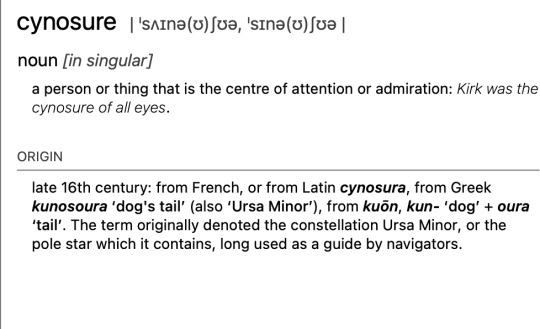
The speaker knows not to attempt their distinction, thrice referring to the options as “it” and leaving the decisions up to Time, which has reassumed a personified stance.
The reconstituted entity seems to be a “comic” hybrid of the metaphorical thieving bird and the “happy spirits.”
As an afterthought, Milton’s phrase “and the will of Heav’n” gives Time divine inspiration.
Medial caesuras after “more” and “lot” help to break up the four lines, emphasizing the multiplicity effect.
“To” and “Toward” offer multiple meanings for the concept “approach,” becoming a combination of spatial movement and movement towards similarity of kind.
Of the three quatrains, the third is the least coherent, metrically.
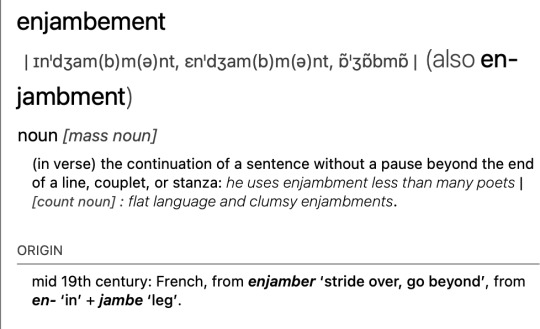
It contains the only enjambment (“ev’n/To that same lot”), but, as if “in strictest measure,” it is accepted with its disparate and overreaching patterns.
The themes of resignation and passivity, however, are the foci of lines nine through twelve.
With the reintroduction of the personified Time, “I” is replaced by the once-mentioned first- person object “me.”
This submission, in reverence to the divine, is encouraged by the certainty and confidence of the “shall be” prophesy of line ten.
“That same lot” embodies the essence of the speaker’s resigned indifference.
Completely turned around, he no longer has expectations of his own but, rather, offers the amorphous “lot” of his life to Time and “the will of Heav’n.”
Ironically, the two “shall be still in strictest measure” if this resignation is sustained.
The power of the volta and the binary oppositions allow for the notion of “lot,” or a multifaceted future.
This is quite a departure from the very specific “three-and- twentieth year,” at which time “bud or blossom” are the only options.
With resignation comes the acceptance of multiplicity RVL – Yes, of course, you needed to elaborate further, especially But what you did do with the formal is quite good! And your thematic discussion is clearly the best in the class!
Richard Val LeClercq, 63, died July 29, 2005, from complications of acute alcoholism.
He is survived by his son Noel LeClercq, San Marcos; daughter Desiree LeClercq, Austin; stepson Glenn Ross, Austin; brother Leon LeClercq, Los Angeles; and a host of ex-wives. Val was born in Los Angeles and received his Ph.D. from UCLA, where he swam butterfly and sang tenor in the Opera Workshop. He was hired by the University of Texas Department of English as their authority on poet John Milton. Val taught for almost 30 years, switching specialities to literary criticism and directing the dissertations of many bright English majors. Val was a talented pianist, and had a sweet tenor voice. He was a GoldenEar hi-fi enthusiast who designed and built stereo systems. He brought enthusiasm and intelligence into each of his many projects, and somehow talked his friends into participating in each outlandish invention. His family thanks the English Department for its patience with his disease. The family plans a wake to celebrate his life and introduce his old friends to his children. Please call Terri for details of the Final A-B Test. The family hopes each reader will make out a will, right now. Memorials should be sent to Alcoholics Anonymous, North Austin 24-Hour Group. — Family-Placed Obituary, Austin American-Statesman, August 6, 2005
on the verbal. and the paradoxes of fate.
The speaker accepts passively his lot, willing to follow Time and an ill-defined destiny.
Completing the transformation from obsessive control to passive resignation, the couplet is, itself, a binary opposition.
At the end of the poem, it presents a promise and a warning to the speaker.
“All is,” isolated by an initial caesura, restates the “lot” concept of a multiplicitous future, setting it apart as the stake in the balance.
In regular iambic pentameter, the speaker evenly states, “if I have grace to use it so,” revealing a dependency on “the will of Heav’n” and the leadership of Time.
The last line of the sonnet breaks up the rhythm, stressing “great Task-Master’s eye.”
This is appropriate, considering that the appearance of “inward ripeness” is to be evaluated with the inner eye, and not the deceptive, outer reflection.
The speaker of Sonnet 7, over the course of the poem, moves from anxiety to inner peace.
This transformation is achieved through the acceptance of a passive role in relation to Time and Heaven.
Milton’s conclusion, however, poses several questions.
Fittingly, these concern the duality of the speaker’s redemption. If inner peace is contingent on the grace of God, why is the speaker’s own self-evaluation made to seem so important?
Likewise, if the speaker has achieved this transformation of attitude from the volta in line nine to the end, why is there a lingering question as to the certainty of “if I have grace”?
Punctuating these questions is the uncanny duality of “I” and “eye.”
Placed in such close proximity in the text, the distinction between these homophones is difficult to discern if heard aloud. Milton leaves us, ultimately, with a perplexing conclusion. Is the giver of grace just as multiplicitous as the life that receives it? A passive response, we have learned, keeps those questions at bay.
John Ewing
The Poetry of John Milton,
ENG 363
Prof. Richard “Val” LeClercq University
of Texas at Austin 1989
RVL – Yes, of course, you needed to elaborate further, especially on the verbal. But what you did do with the formal is quite good! And your thematic discussion is clearly the best in the class!
0 notes
Text
Supermodel Monique Desiree Taitague sings on this track
1 note
·
View note
Text
Supermodel Monique Desiree Taitague sings on this track.
1 note
·
View note
Text
I'm doing another mini bio about my 1st gen ocs, this one is about Desiree.
Desiree grew up in Atlanta with her parents and her younger brother. She had a pretty normal upbringing and she was pretty close with her parents, especially her dad.
She was super passionate about fashion and journalism. She collected fashion mags and tried to follow up with all the trends. Her fashion icons were Naomi Sims, Diana Ross, Twiggy, Donyale Luna, Donna Summer, etc.
She was pretty involved with her school. She got really good grades and was different on sports teams all throughout school. After high school, she moved to Tulsa for college since they had a really great journalism program.
She ended up becoming really good friends with Ruby since they were in college together. Ruby was the one who introduced Desiree and Dylan to eachother.
Desiree works for a fashion magazine as a reporter and interviewer. It's her absolute dream job.
@bfluva @sadlonelyyogurt
1 note
·
View note
Text
A Country Christmas Story is a touching story!
Hey guys! I’m here to do a review for the movie “A Country Christmas Story!” I loved this movie when I watched it! It was such an amazing and touching story! The movie is about a teenager that dreams of becoming a country music star despite her family situation. With the cast of Megyn Price, Ross McCall, Brian McKnight, Desiree Ross, Preston Bailey, Mary Kay Place, Dolly Parton, Steve Monroe,…

View On WordPress
0 notes
Text

This week, we're still riding high from the Bros. Landreth concert in Churchill last week. And the month of August still has some live music in store for us up north, so we previewed that fun. There's also (obviously) some great shows happening all summer long in Winnipeg, and we previewed that, too! We also got a listen to Sean Burns' newly released single from his brand new album "Lost Country" which is due this fall. Plus our pal Neil Mumby is traversing the island of Newfoundland, and wanted a special request. We were more than happy to oblige! Hope you're enjoying your summer. Only 4 weeks to go!
~joe
HERE'S WHAT YOU HEARD TODAY!
VINCE GUARALDI - Peppermint Patty (Show Theme)
DESIREE DORION - Unlove You That’s How I Know, 2023
BROS. LANDRETH - Don’t Feel Like Crying (feat. Leith Ross) Come Morning, 2022
JOEL PLASKETT EMERGENCY - True Patriot Love Down At The Khyber, 2001
SEAN BURNS - Destroy Me Single, 2023
GOOSE CREEK SYMPHONY - Words Of Earnest Words Of Earnest, 1972
KRISTI LANE SINCLAIR - Super Blood Wolf Moon Super Blood Wolf Moon, 2023
JAYWOOD - Some Days Some Days, 2021
AMOS THE KID - Under Thin Eyelids Enough as it Was, 2023
BOOTER - Island Vibes 10/10, 2022
WASHBOARD HANK AND THE COUNTRY SQUIRES - Marmora Pig Hoorah For Washboard Hank, 2003
SHANNEYGANOCK - The Dundee Cat Live at O’Reilly’s, Vol. 1, 2000
SPIRIT OF THE WEST - And If Venice Is Sinking Faithlift, 1993
VINCE COLLINS - Smash The Window/Geese In The Bog/Mike Bennett’s Tune/Dirty Dirt Out Lifting Out The Stove, 2003
This Week's Episode On... Apple Podcasts Spotify Podcasts Google Podcasts Podbean iHeartRadio TuneIn Radio
This Week's Playlist On... Spinitron
0 notes
